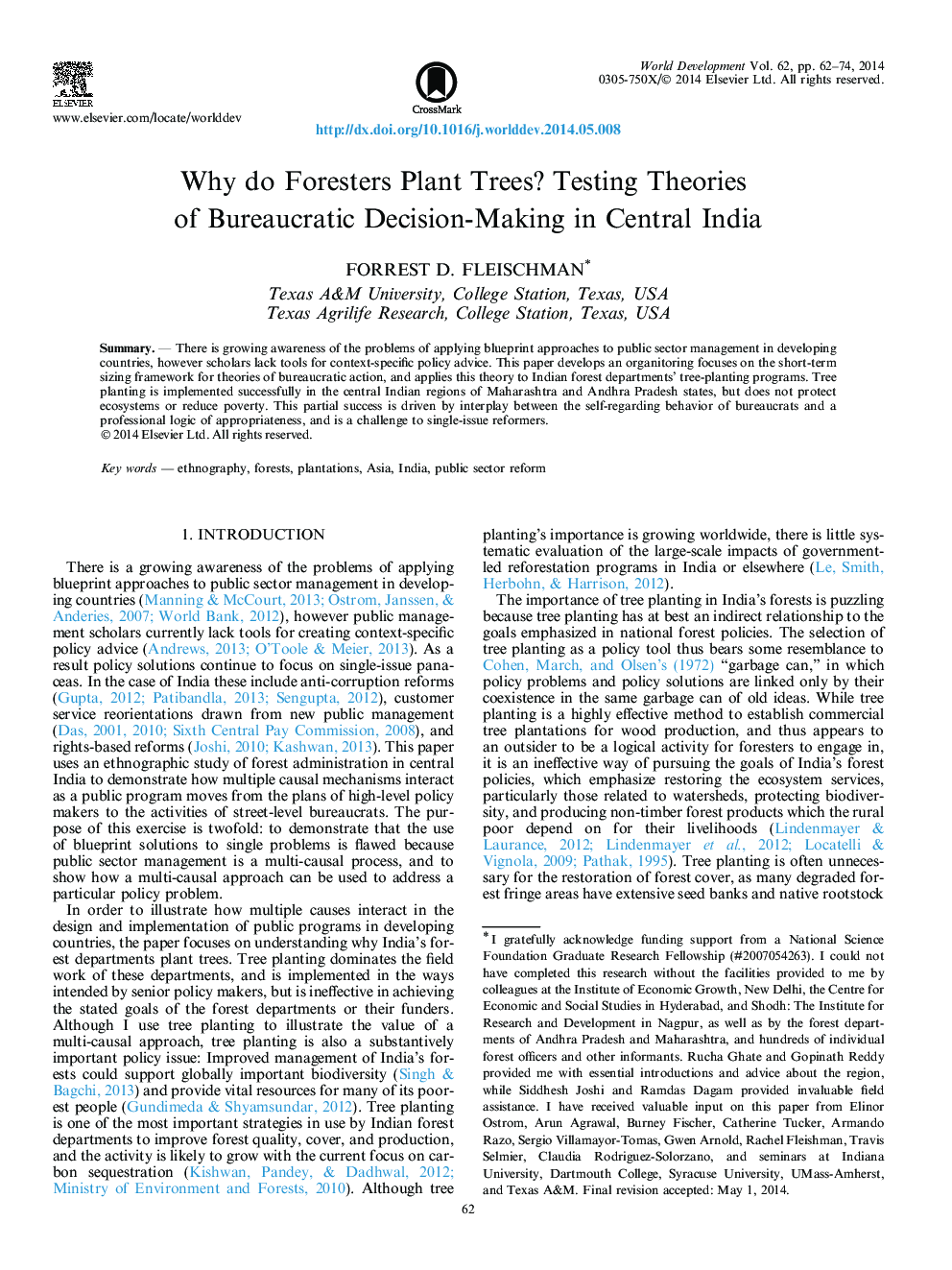| Article ID | Journal | Published Year | Pages | File Type |
|---|---|---|---|---|
| 991376 | World Development | 2014 | 13 Pages |
•This paper develops a framework of theories of bureaucratic action in development.•Tree planting among foresters in India is a partially successful policy.•Outcomes are driven by complex, multi-causal processes.•Interplay between self-regarding behavior and a logic of appropriateness.•Single-issue reforms unlikely to succeed.
SummaryThere is growing awareness of the problems of applying blueprint approaches to public sector management in developing countries, however scholars lack tools for context-specific policy advice. This paper develops an organitoring focuses on the short-term sizing framework for theories of bureaucratic action, and applies this theory to Indian forest departments’ tree-planting programs. Tree planting is implemented successfully in the central Indian regions of Maharashtra and Andhra Pradesh states, but does not protect ecosystems or reduce poverty. This partial success is driven by interplay between the self-regarding behavior of bureaucrats and a professional logic of appropriateness, and is a challenge to single-issue reformers.
